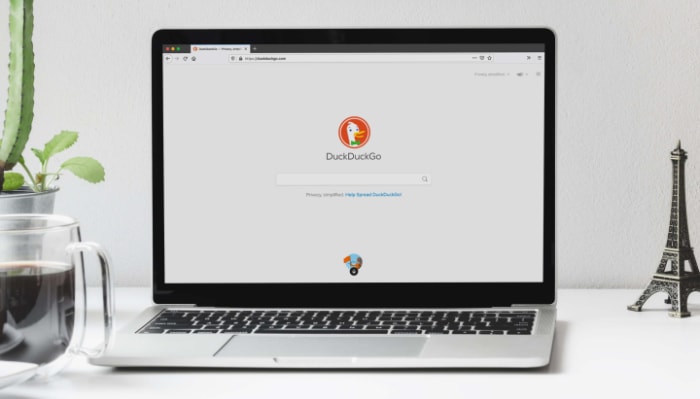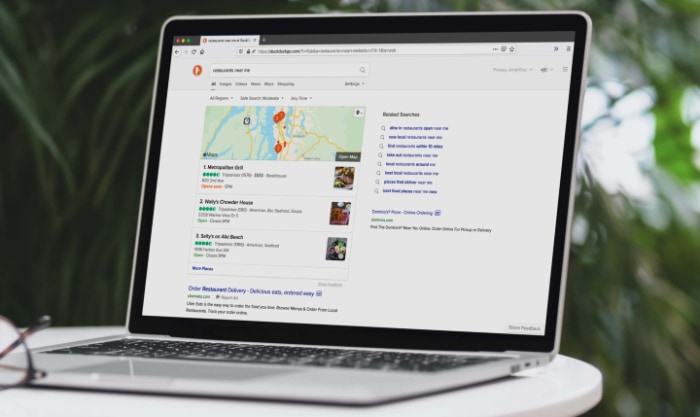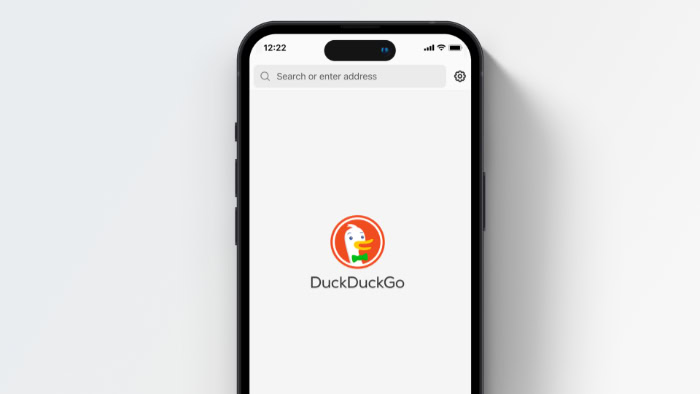What Is DuckDuckGo? Searching Without Being Tracked

Your online activity is a valuable commodity, constantly monitored and collected by major technology companies. DuckDuckGo offers a different approach.
It’s a technology company built on a single, powerful promise: to protect your privacy online. Its main product is a search engine that refuses to track your queries or build a profile on you.
Beyond search, the company provides a complete suite of privacy tools, including a secure web browser for both desktop and mobile. In an era of widespread digital surveillance, this commitment to user anonymity provides a genuine alternative for anyone seeking to reclaim their online freedom.
What Is DuckDuckGo?
While DuckDuckGo is recognized primarily for its private search engine, the company's scope is much broader. It has evolved from a single product into a comprehensive privacy service, addressing a wide array of online security concerns that extend far beyond simple web searches.
The company provides a collection of tools designed to protect user data across different online activities.
The Company and Its Mission
From its inception, DuckDuckGo was built on a foundational principle: to offer a truly private alternative to mainstream search engines that track and store user information. The company’s stated mission is to establish a new standard of trust online, where users do not have to trade their personal data for a quality service.
It operates with the conviction that privacy should be simple and accessible to everyone, not a complicated setting that requires constant management.
A Suite of Privacy Tools
What began as a focused effort to anonymize web searches has since expanded into a full suite of privacy-protection tools. DuckDuckGo now offers a dedicated private browser available for both desktop and mobile devices.
For users who prefer their current browser, the company provides extensions that add its privacy features, such as tracker blocking, to other platforms. The product lineup also includes an Email Protection service, designed to remove trackers from emails and hide a user's true email address.
The Business Model
A common question is how a free privacy service can sustain itself financially. DuckDuckGo’s business model is straightforward and avoids user profiling entirely.
The company generates revenue through private, contextual advertising. When you search for something, like “car” or “computer,” you may see an ad related to that term.
These ads are based only on the keywords in your search query, not on your personal data, location, or search history. This method allows the company to be profitable without compromising its core commitment to user privacy.
How DuckDuckGo Protects Your Privacy

DuckDuckGo employs a layered strategy to safeguard user information, moving beyond private search to offer protection across your entire browsing session. Its methods are designed to prevent tracking, secure your connection to websites, and simplify the process of exercising your privacy rights online.
These protections are integrated directly into its browser and extensions.
Anonymous Searching
The foundation of DuckDuckGo's privacy commitment is its strict no-tracking policy. It does not log your search history, IP address, or any other personal information.
Because your searches are never tied to you, they cannot be stored or sold to advertisers. A significant benefit of this approach is the delivery of unbiased search results.
Other search engines create a “filter bubble” by personalizing results based on your past behavior and demographic profile. DuckDuckGo shows everyone the same results for a given search term, providing a more objective view of information on the web.
Tracker and Cookie Blocking
Beyond its own search engine, the DuckDuckGo browser and extensions actively defend you from surveillance across the internet. They are equipped to block hidden third-party trackers from companies like Google and Facebook before they can load on the websites you visit.
This prevents them from monitoring your activity and building profiles on you. Additionally, the software helps manage the constant stream of cookie consent pop-ups.
It automatically sets your preferences to the most private option available and then closes the banner, creating a cleaner and more secure browsing experience without constant interruptions.
Enhanced Security Measures
DuckDuckGo also implements technical safeguards to improve your online security. Its Smarter Encryption feature forces websites to use a secure HTTPS connection whenever one is available, encrypting the data traffic between your device and the site.
An insecure connection would leave your activity vulnerable to snooping, especially on public Wi-Fi networks. Furthermore, the browser and extensions have Global Privacy Control (GPC) enabled by default.
GPC is a signal sent to websites that communicates your preference to opt out of having your data sold or shared, automating your right to privacy without requiring you to navigate complex settings on every site you visit.
The Search and Browser Experience

Beyond its privacy protections, DuckDuckGo provides a clean and efficient user experience with several distinct features in both its search engine and its dedicated browser. The design philosophy centers on simplicity and directness, offering tools that enhance functionality without adding unnecessary complexity.
Unique Search Features
DuckDuckGo integrates tools designed to get you answers more quickly. A popular function is “!bangs,” a command system that lets you search directly on thousands of other websites.
By typing a shortcut, or “bang,” before your query, you can bypass the DuckDuckGo results page and go straight to the search results on another site. For example, typing !w Albert Einstein will take you directly to the Wikipedia article, and !a standing desk will search for that item on Amazon.
This feature streamlines the process of finding information on sites you already trust. Additionally, the search engine often presents Instant Answers at the top of the page.
These are source-based information boxes that provide quick summaries, definitions, or calculations. Some of these are powered by DuckAssist, an AI tool that generates concise answers from Wikipedia.
The DuckDuckGo Private Browser
The DuckDuckGo Private Browser is built around convenience and privacy, with features that reflect this focus. Its most well-known element is the “Fire Button,” a single button that instantly closes all of your tabs and erases all associated browsing data, such as your history and cookies.
This offers a simple way to leave no trace of a session behind. The browser itself has a minimalist user interface, promoting a distraction-free environment.
Despite its simplicity, it offers a good degree of personalization. Users can customize the appearance with different color themes and change font styles, as well as adjust the specific privacy protections they want enabled, creating a browser that is both secure and tailored to their preferences.
A Comparative Look: DuckDuckGo vs. Google

Choosing between DuckDuckGo and Google involves weighing two fundamentally different approaches to information access. The comparison is not just about search result quality; it reflects a broader choice between a service designed for privacy and one designed for personalization.
Their differences extend from how they handle your data to the scope of the services they provide.
Privacy vs. Personalization
The most significant distinction lies in their data collection policies. DuckDuckGo is built on a foundation of anonymity, meaning it does not collect or store any personal information tied to your searches.
Everyone who searches for the same term receives the same results. In contrast, Google's business model relies on user data.
It creates a detailed profile based on your search history, location, age, and other information to deliver highly tailored search results and ads. This personalization can be convenient, but it also creates a “filter bubble” that can reinforce your existing biases by showing you content it thinks you want to see.
Ecosystem and Integration
Google offers a deeply interconnected ecosystem of services that DuckDuckGo does not attempt to replicate. A single Google account links together Search, Maps, Gmail, Drive, Photos, and numerous other applications.
This integration creates a seamless experience where information flows between services, often anticipating a user's needs. DuckDuckGo has a much narrower focus.
It concentrates on providing its core functions of private search, browsing, and email protection. It is a specialized tool for privacy, not an all-encompassing suite of connected digital services.
Feature Parity
While DuckDuckGo offers all the essential search functionalities, including image, video, news, and map searches, some of these may not feel as comprehensive as Google's offerings. Google has spent years refining its features with massive amounts of data, resulting in extremely detailed map services and advanced image search filters.
DuckDuckGo provides effective, clean results for these categories but sometimes with less depth or fewer sorting options. For many users, the provided features are more than sufficient, but those who rely heavily on Google's more advanced, data-intensive tools may notice a difference.
Limitations and Criticisms

Despite its strong privacy focus, DuckDuckGo is not without its limitations and has faced public criticism. Potential users should be aware of certain trade-offs regarding its performance and the specific scope of its privacy protections.
These points are important for having a complete picture of the service.
Search Result Quality
A frequent point of discussion among users is the quality of DuckDuckGo's search results compared to its main competitors. Some people find that for certain queries, especially complex or obscure ones, the results can be less comprehensive or return at a slightly slower speed.
Since the search engine does not build a user profile, it cannot tailor results based on past behavior or location, which can sometimes lead to less relevant outcomes. This is often seen as a direct trade-off; users exchange the highly personalized convenience of other platforms for the assurance of privacy.
The Microsoft Tracking Controversy
In 2022, DuckDuckGo faced scrutiny when security researchers discovered that its private browser allowed some Microsoft trackers to operate on third-party sites. The issue stemmed from a search syndication agreement with Microsoft, which provides some of the advertising and search results for DuckDuckGo.
The agreement temporarily restricted DuckDuckGo from fully blocking Microsoft's tracking scripts. Following public disclosure, the company acknowledged the situation and updated its policies and browser to block these trackers more comprehensively, affirming its commitment to user privacy.
Clarifying Anonymity
There is a common misconception about the level of anonymity DuckDuckGo provides. While the service ensures your search history is private and does not profile you, it does not function as a Virtual Private Network (VPN).
It does not hide your IP address from the websites you visit or from your internet service provider. A website can still see that a visitor with your IP address has arrived, although it will not know what you searched for to get there.
For users who require a higher degree of anonymity to completely mask their location and online identity, using DuckDuckGo in conjunction with a trusted VPN is necessary.
Conclusion
DuckDuckGo stands as a capable and direct alternative for people seeking to protect their online activity. Its suite of privacy tools, from the search engine to the dedicated browser, is designed around a single commitment: to provide effective service without tracking users.
This approach results in a different kind of online experience, one free from data-driven personalization. For many, the choice reflects a preference for the privacy it guarantees over the tailored convenience offered by other platforms.
It provides a straightforward method for anyone wanting to exercise more control over their digital presence.


